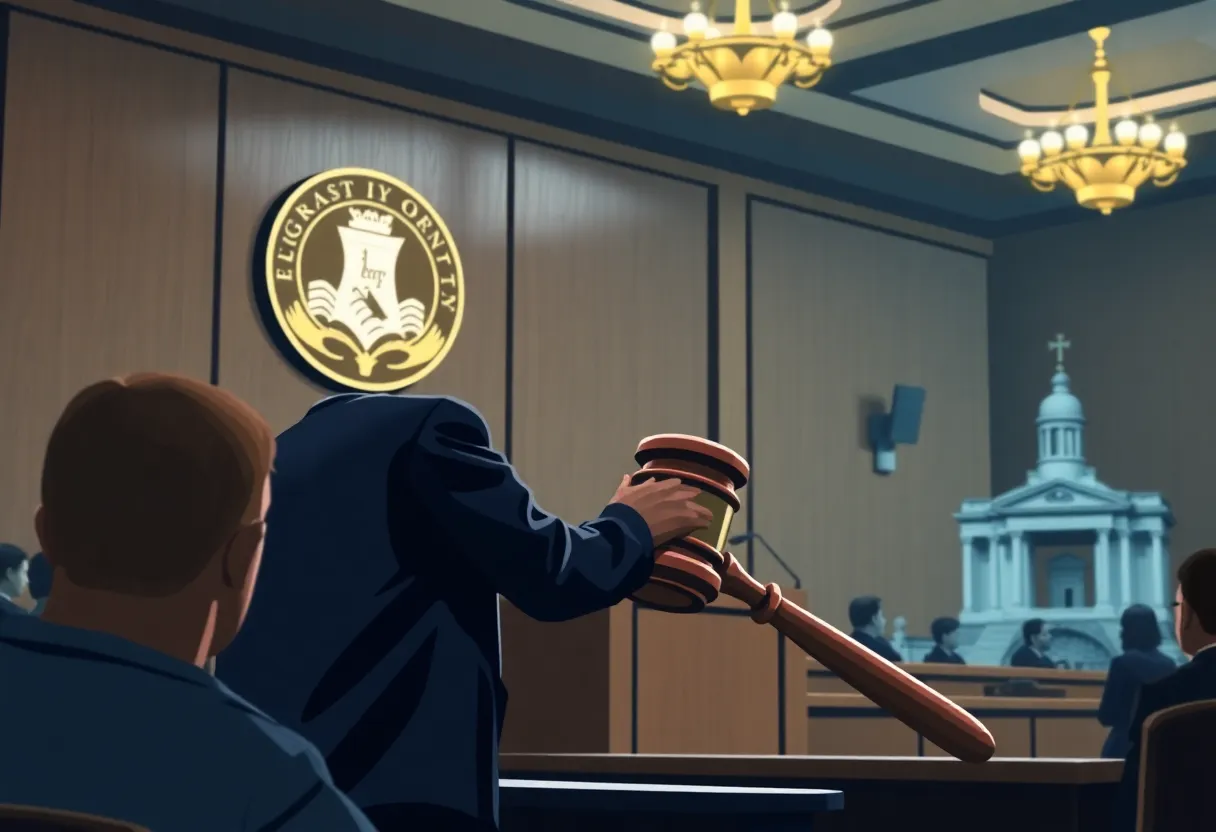News Summary
A Fairfax Circuit Court ruling has ordered the removal of eight public university board members appointed by Republican Governor Glenn Youngkin, amid a lawsuit from Virginia Senate Democrats. This significant decision highlights ongoing tensions over higher education governance in the state, impacting the University of Virginia, George Mason University, and the Virginia Military Institute. The ruling reinforces legislative authority in confirming gubernatorial appointees and raises questions about political influence in university leadership. Virginia’s Attorney General announced plans to appeal the decision to the Supreme Court of Virginia.
Virginia – A Fairfax Circuit Court judge has ordered the removal of eight public university board members who were appointed by Republican Governor Glenn Youngkin. This ruling, handed down by Judge Jonathan D. Frieden, affects the governing boards at the University of Virginia, George Mason University, and the Virginia Military Institute, marking a significant legal decision in the ongoing political dispute concerning higher education governance in the state.
The action arose from a lawsuit filed by nine Virginia Senate Democrats who sought immediate intervention against the heads of university boards, including rectors or presidents. The legislators argued that despite a legislative committee’s rejection of the appointments of the eight board members back in June, the boards’ chairs had continued to recognize them as official members, which raised concerns about adherence to the law and legislative authority.
Judge Frieden’s ruling reinforced the principle that the authority of the elected legislature to confirm or reject gubernatorial appointees must be upheld. He stated that the Senate committee’s rejection indicated the General Assembly’s “positive unwillingness” to accept the listed appointments and constituted a refusal under the Virginia Constitution. This ruling serves to clarify the boundaries of gubernatorial power in relation to state university boards and the legislative checks on that power.
In response to the ruling, Virginia Attorney General Jason Miyares announced the state’s intention to appeal the decision to the Supreme Court of Virginia. Miyares expressed confidence in the legal position that full confirmation by the General Assembly is required for gubernatorial appointees to be recognized in their roles.
The controversial appointees include notable figures such as former Virginia Attorney General Ken Cuccinelli II and former Commerce Secretary Caren Merrick. Their appointments had generated considerable debate regarding the influence of political affiliations on university governance, particularly as tensions surrounding diversity, equity, and inclusion (DEI) initiatives have escalated in Virginia.
Senate majority leader Scott Surovell remarked on the situation, indicating that the actions of the university boards illustrate a potential disregard for the law and legislative authority. This incident highlights an increasing political tension regarding the management of higher education institutions, especially as the state grapples with allegations of politicization in university leadership.
The legal battle also signifies broader discussions on faculty governance and the extent of political influence over university boards, amidst ongoing federal investigations concerning some college institutions within Virginia. Increasing concerns over transparency and accountability in board appointments have emerged, especially after the resignation of former University of Virginia President Jim Ryan, who faced pressure from the Trump administration related to the politicization of educational leadership.
This situation underscores a pronounced partisan divide, with Democratic lawmakers asserting that Youngkin’s appointees are likely to further politicize Virginia’s educational environment. As debates over the governance of higher education continue, the outcome of this case is anticipated to significantly influence how appointments by the governor are managed, as well as the process through which these appointments are to be confirmed by the legislature moving forward.
As Virginia navigates this legal landscape, the implications for university leadership selection are considerable, with many stakeholders calling for a more transparent and accountable process to govern the appointments that shape the educational environment in the state. The ongoing dispute is emblematic of a larger conflict over leadership and ideological direction in Virginia’s higher education system.
Deeper Dive: News & Info About This Topic
- Virginia Mercury
- Wikipedia: Virginia
- Inside Higher Ed
- Google Search: Virginia education governance
- The Washington Post
- Google Scholar: Virginia university governance
- NBC Washington
- Encyclopedia Britannica: Virginia Education
- The New York Times
- Google News: Virginia university politics

Author: STAFF HERE WILLIAMSBURG WRITER
The WILLIAMSBURG STAFF WRITER represents the experienced team at HEREWilliamsburg.com, your go-to source for actionable local news and information in Williamsburg, James City County, and beyond. Specializing in "news you can use," we cover essential topics like product reviews for personal and business needs, local business directories, politics, real estate trends, neighborhood insights, and state news affecting the area—with deep expertise drawn from years of dedicated reporting and strong community input, including local press releases and business updates. We deliver top reporting on high-value events such as Williamsburg Farmers Market, Yorktown Market Days, and Busch Gardens Food & Wine Festival. Our coverage extends to key organizations like the Greater Williamsburg Chamber of Commerce and Colonial Williamsburg Foundation, plus leading businesses in education and hospitality that power the local economy such as College of William & Mary, The Williamsburg Winery, and Sodexo. As part of the broader HERE network, including HEREVirginiaBeach.com, we provide comprehensive, credible insights into Virginia's dynamic landscape.


